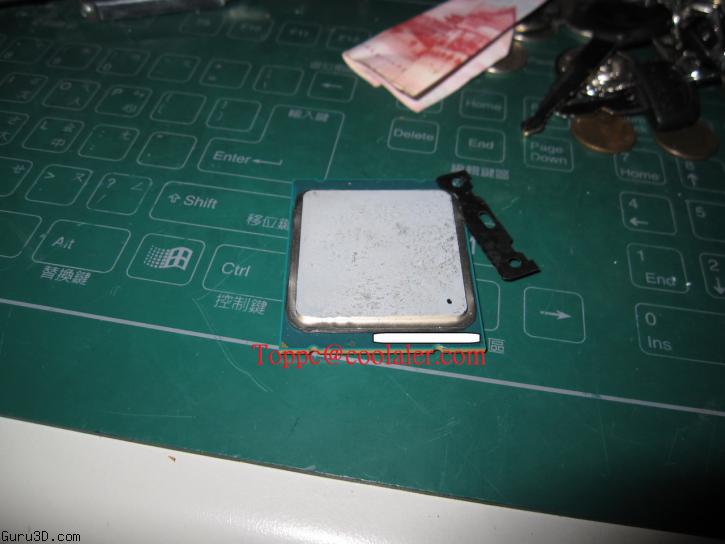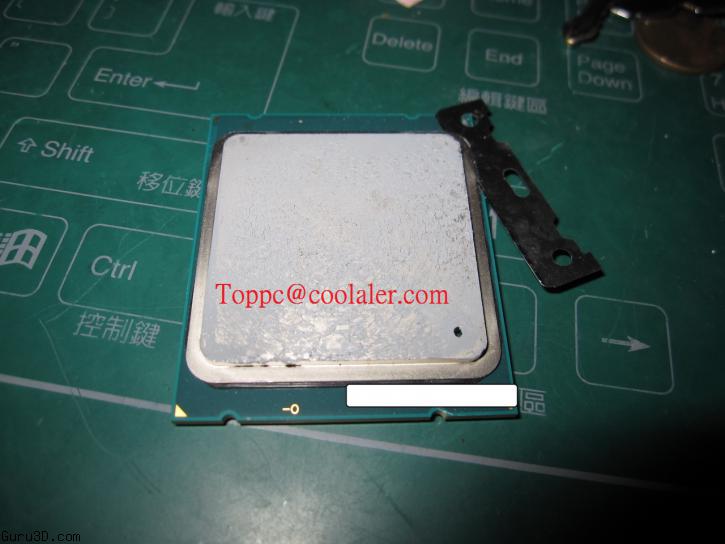Coolaler forum member Toppc got his hands on an engineering sample of Intel's Core i7-4960X and decided to check out what's behind the heatspreader of this upcoming Ivy Bridge-E chip. Interestingly, it seems Intel has switched back to using solder, instead of the cheaper thermal paste that was introduced with the regular Ivy Bridge series. This thermal paste was blamed for higher temperatures on Ivy Bridge versus Sandy Bridge, so hopefully the solder will result in chips that dissipate their heat more efficiently.
A user in the Coolator forums has popped the lid on a purported Core i7-4960X, revealing old-school solder rather than the TIM used on Intel's recent desktop CPUs. This isn't conclusive evidence, but I wouldn't be surprised if the report were accurate. Like Sandy Bridge-E, Ivy-E is basically a server-grade Xeon rebranded for duty in high-end desktops. It doesn't make sense for Intel to skimp on the thermal performance of a product designed for toasty server racks. The higher margins commanded by Xeon-based parts should cover any additional cost associated with the solder, as well.
Intel Ivy Bridge-E has solder under its IHS




